Being on your own can be tough, most specially finding the right balance between getting good commissions and paying your bills. Here's a set of personal findings that I collected throughout these years running my own studio.
I started freelancing around 10 years ago. I had a full time job back then and my freelance work would come to bring in some extra money that I could use for holidays. This way, I could travel to a different country every year, during my scheduled holidays.
Freelancing full time came for me hand by hand with moving cities. The fact that you don't have to go to an office, allows you to be flexible with your working hours. You could for instance study or even travel around.
Although still working on my own, I don't call myself a freelancer anymore. What changed? Certainly being acquainted that I run a studio with a certain focus, in my case custom Lettering & Typography and I no longer take in jobs that don't contribute in building a bulk of work in that direction. Far from being 'free', my studio depends on me. Fortunately, I don't fully work on my own anymore. I closely collaborate with my agent Handsome Frank who helps me big time into promoting my work and dealing with clients and commissions. Additionally, I have another person handling bills and invoices for me and I don't regret a single penny invested in it.
However, I've done it entirely on my own for a while and I know that being self-employed comes along with struggle and decision making. Producing artwork is a small part of the actual work you have to do: you'll pick up the phone, answer e-mails, buy copy paper, write bills and pay them too. Nevertheless, a great thing about it is that you can shape your studio the way you want it to be, and THIS is the actual power you have when being your own boss.
It took me all of my 12 years working experience to understand what I just described in a few lines and I've put together a set of elementary principles on getting the type of commissions you want to get. Be ready to read a subjective point of view (mine) and rather an opinion than a definite set of how-to steps. Hopefully this will help informing your own set of principles coming out from your own experience.
![]()
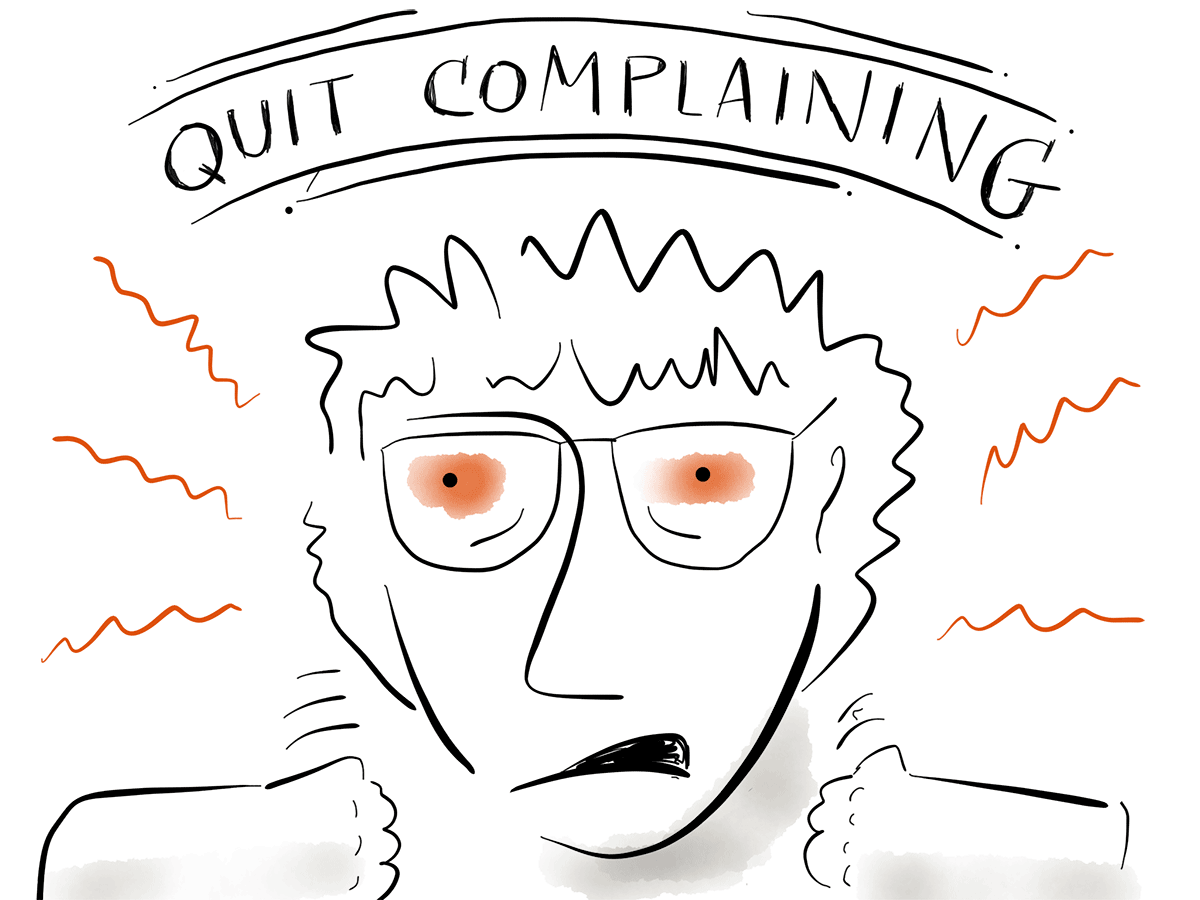
Quit Complaining
Being on your own implies having to cope with the fact that your work will have ups and downs. You'll have to deal with clients, some more empathetic and friendly than others, you'll chase your payments and pay your bills. Complaining about this will only make you waste a lot of energy on being upset. If you are in a downturn of incoming work or you don't like the clients you have, invest your energy in finding new clients, promoting yourself or carrying out a side project.
![]()
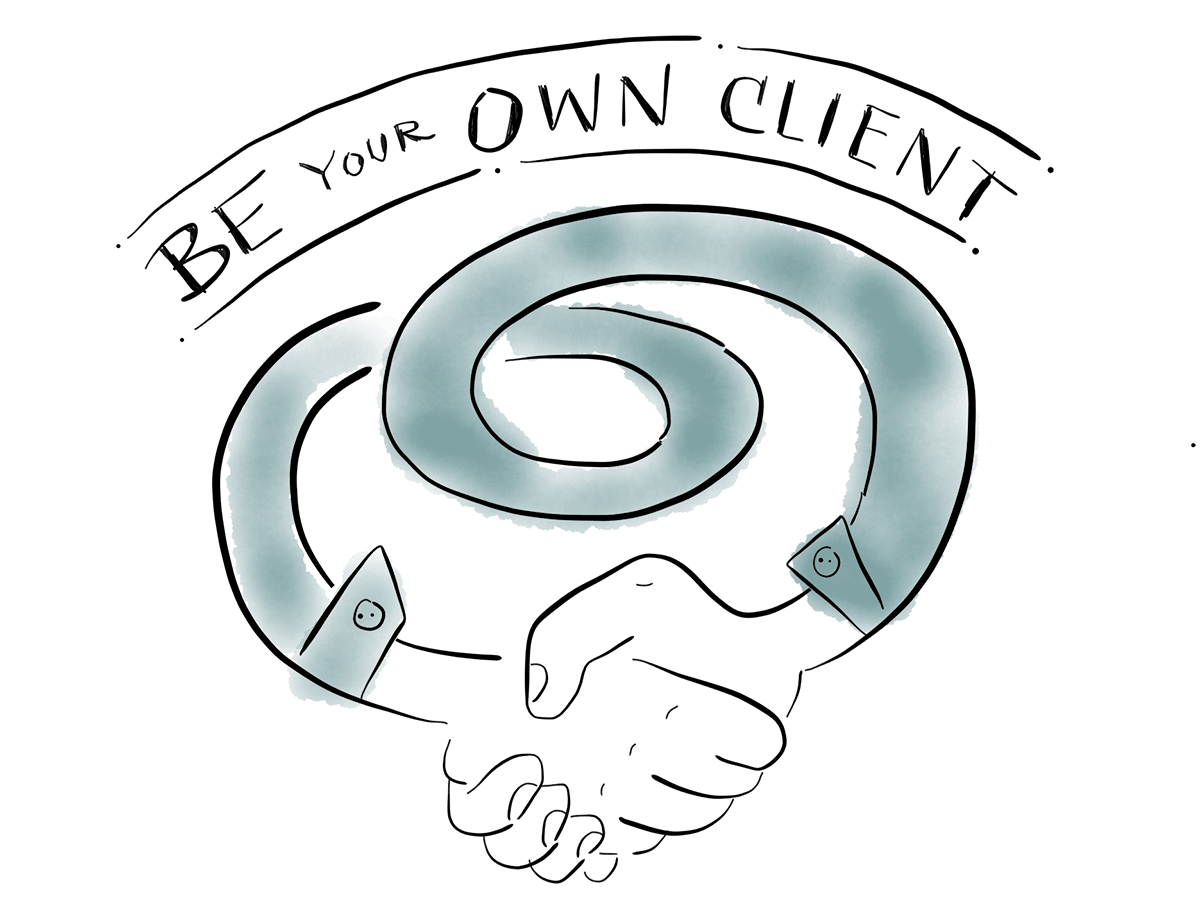
Be your own client
Clients are not the only people who can give you work. As a self-employed you have the freedom to do the projects you always dreamed of, you just have to invest your work and time (and perhaps a bit of money) in being your own client. Stop waiting for the dream project to come, start it yourself.
![]()
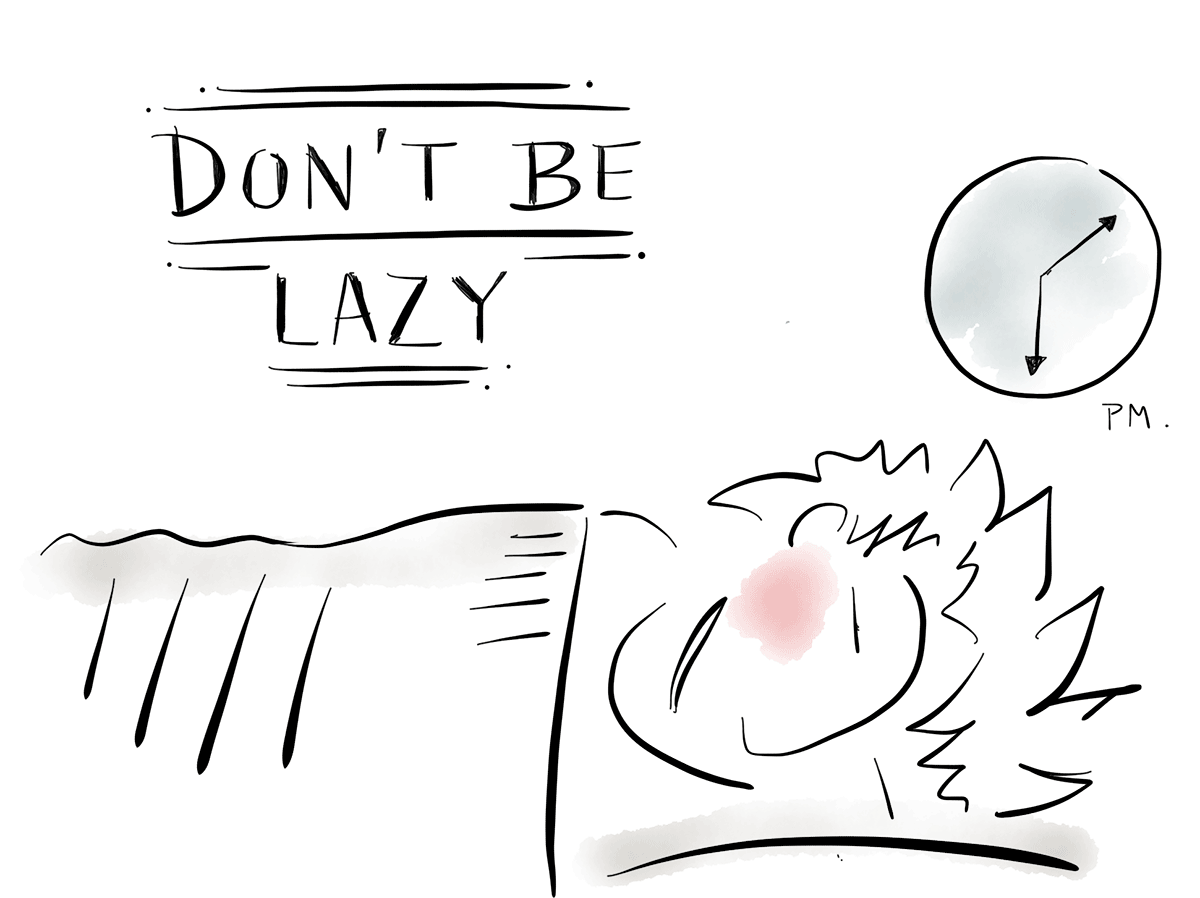
Don't be lazy
Don't take free time when you're supposed to work. You're the one who dictates your agenda and have the great freedom to take long lunch breaks, go to pilates class on working hours or take a day off. However, this shouldn't come from the fact that you have no work. Inactivity brings more inactivity and as soon as you stop going to work because you don't have commissions, your incoming work will start getting less and less. The reasons not to go to work should be rather the opposite: "I'm too stressed", "I need a time out of this project", etc.
![]()
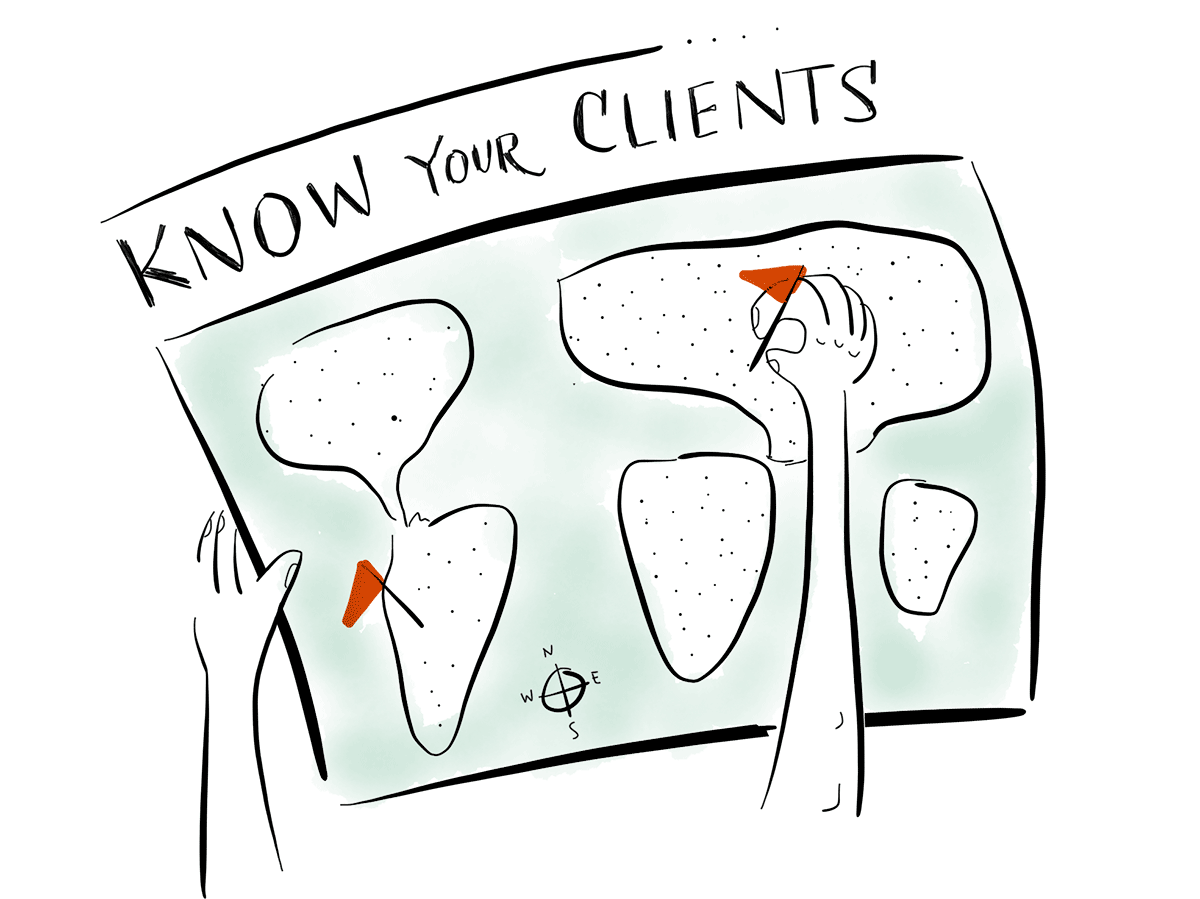
Know your clients
Setting yourself an horizon and defining who you'd like to work for is a critical call. If you aim to work internationally start, for instance, by making your website domain a .com. Defining your potential clients will help you save you time from translating your website into 3 different languages. If your potential client is able to speak english, do not waste your time in translating your website to German, Spanish, Bengali and Turkish.
![]()
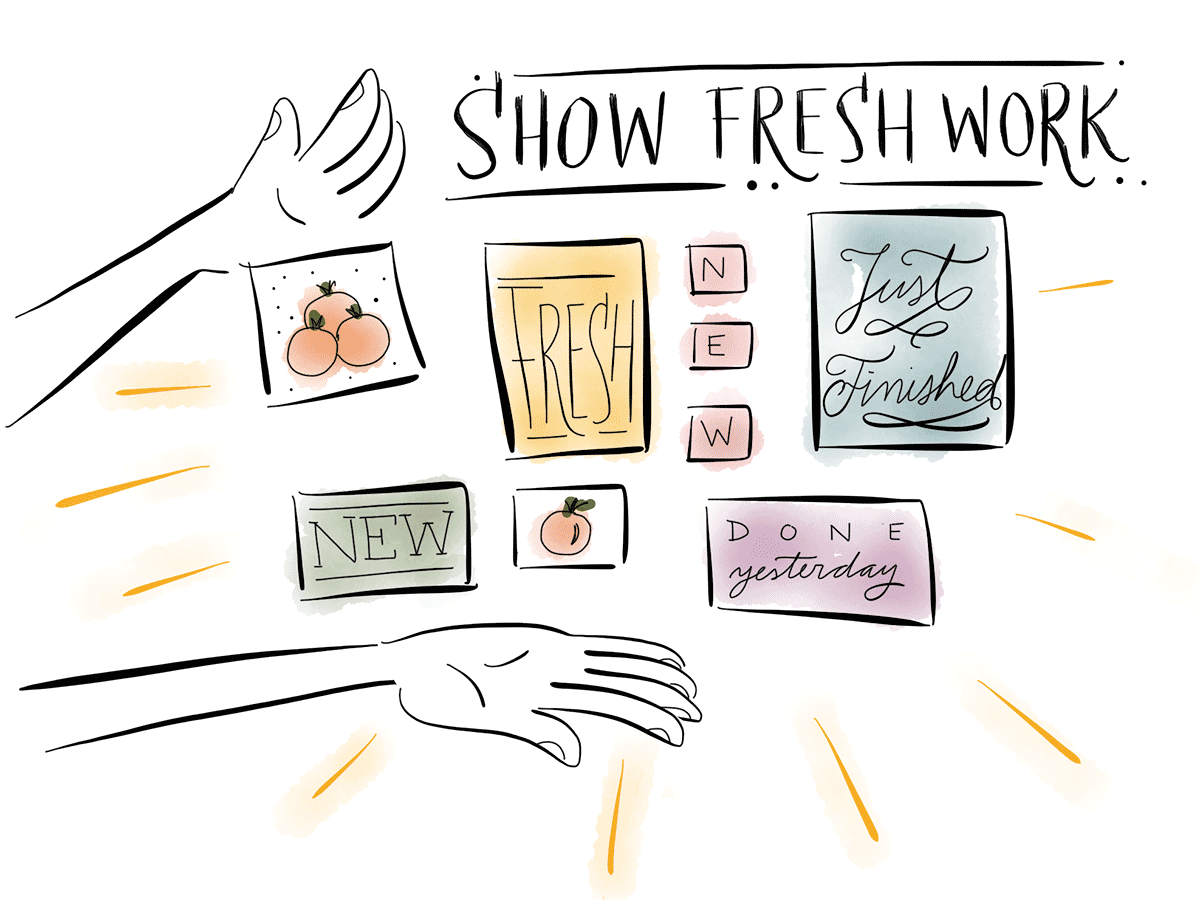
Show fresh work
Keep your portfolio up to date and before this: make a portfolio that is easy to update. Keep your site design away from complex intro animations and multiple languages. Your website should be simple to update for you, easy to navigate for your potential clients and should showcase your latest and best work (see editing your work). Although you might already have plenty of commissions running, keeping your website up to date with fresh work will bring you commissions in the next months or years.
![]()
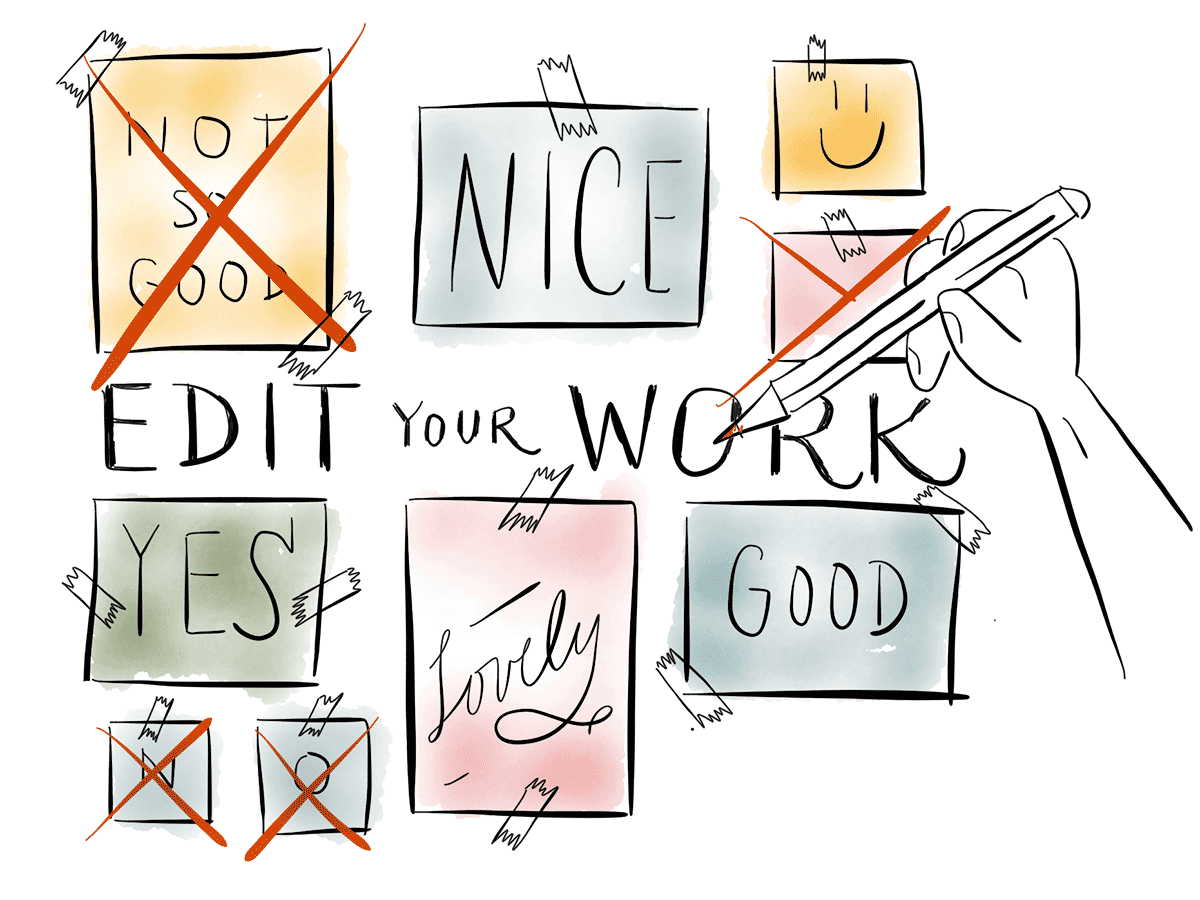
Edit your work
Your portfolio should be the reflection of the sort of work you want to do. You don't want to design any more brochures? Then certainly do not post the last brochure you designed for your uncle's enterprise! Should you accept a job just for the purpose of paying the bills, or you made a commission that lead to something that you're not proud of, or a job that you did for a friend because "you're the only designer he knows"; you don't need to have it on your website. Do not show the work that you don't like, show the work you want to get more from.
![]()
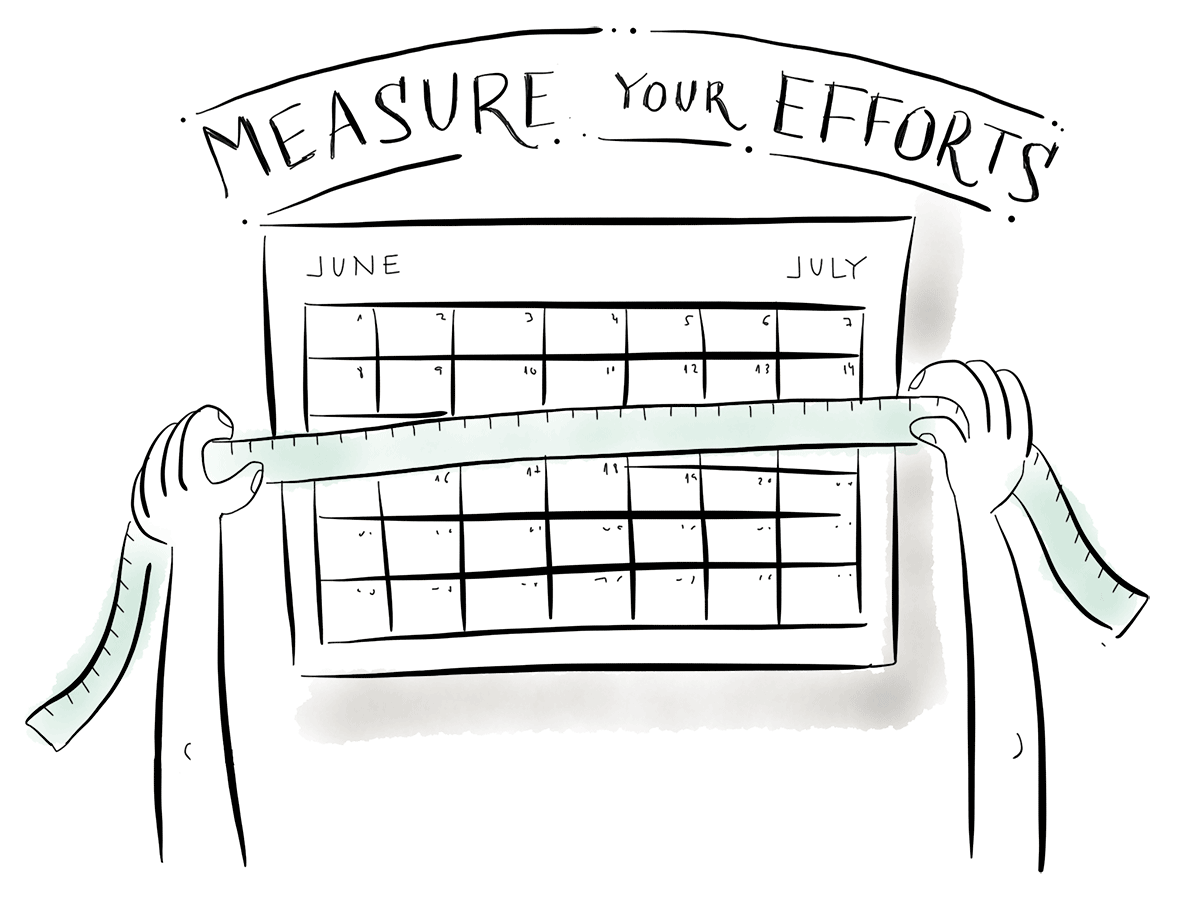
Measure your efforts
Once you have a smart looking site, ideally everything you do should point to it so that everyone gets to see how great your work is. But, how do you get to know whether people is reaching it and checking out your fresh work? How do you know that certain action you make or certain article they posted about you helps bringing traffic to your profile and therefore, potential clients to you? Luckily we have tools to measure this things nowadays and they are of great help to informing our work. Something as simple as getting a google analytics code for your site can give you information on what are the most visited projects in your portfolio, where is the traffic coming from and which kind of audience is interested in your work.
![]()
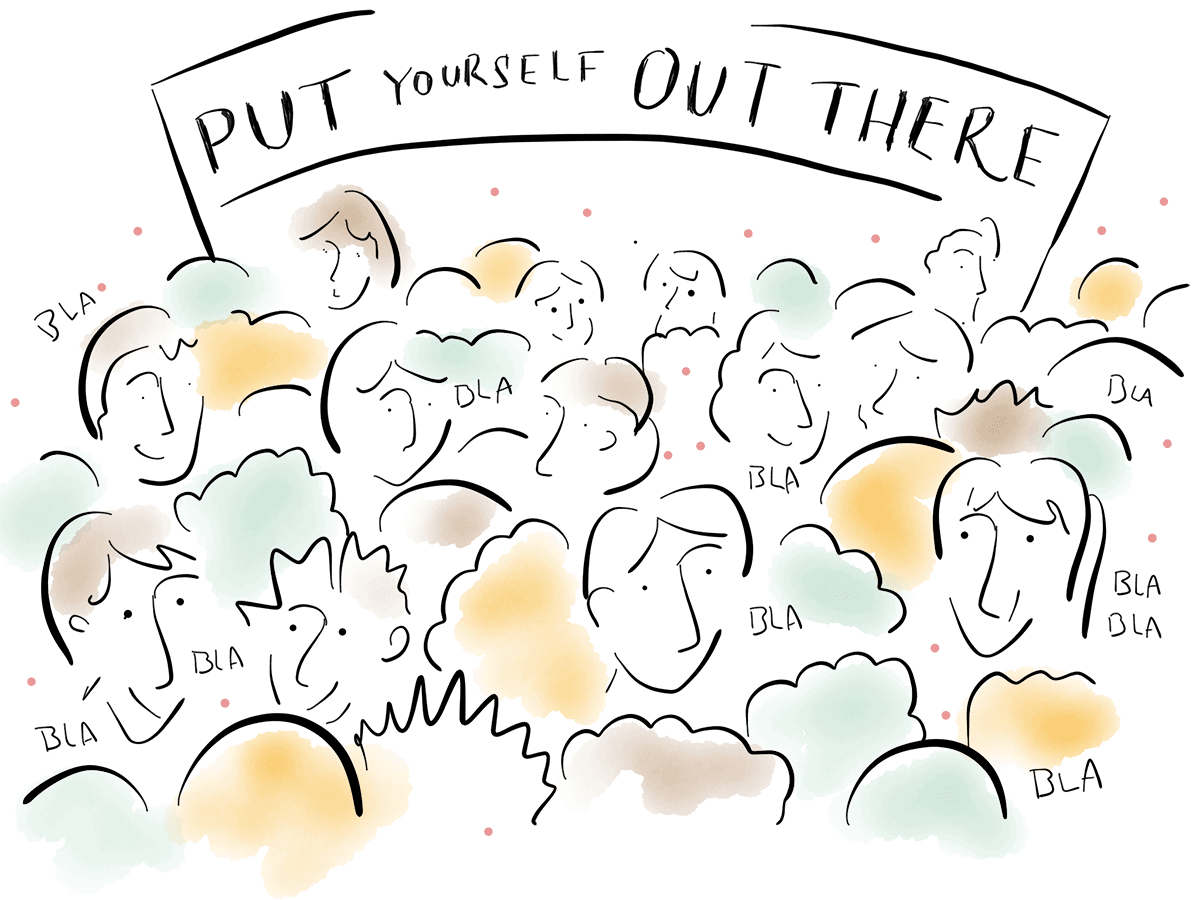
Put yourself out there
Don't hide, take part in the creative community. Art directors, designers, shop owners will very likely reach you through a side channel rather than directly reaching your website. People work with people they like, whether they like you through Instagram, they follow your blog or they met you at Creative Mornings. Find your favorite way to be present: go to conferences or design meetings or have an Instagram account, or be on twitter. My advice would be: try them all. Sounds like a lot but you might also have fun.
![]()
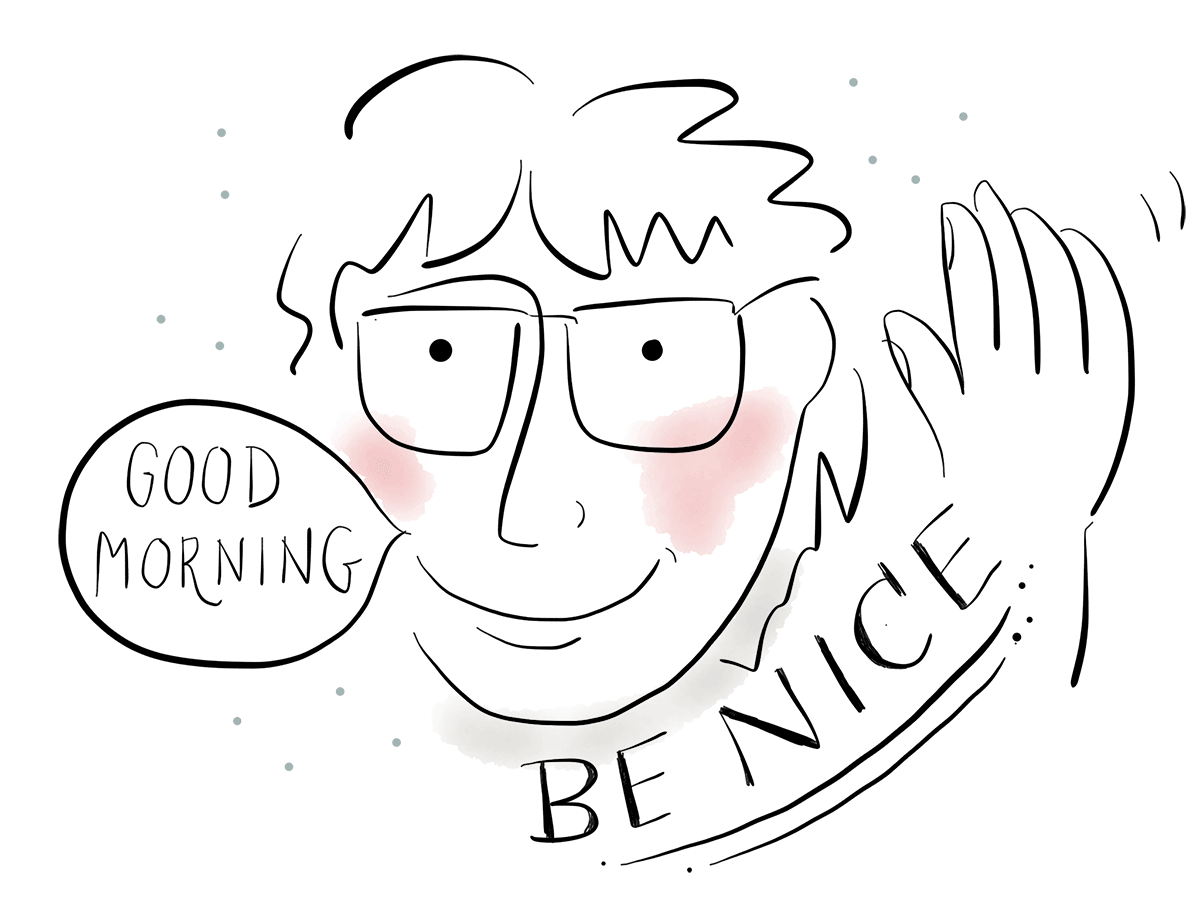
Be nice
No one wants to work with a grumpy individual. You should know by now that design and illustration are not a straight line and your clients don't necessarily have to understand about Typography, composition or color theory. Also, they are humans that make mistakes and change their minds. Take a minute to explain things nicely and perform changes to your designs with a smile. After all, you and your client are together in the seek of the same end: having an outstanding result.
![]()
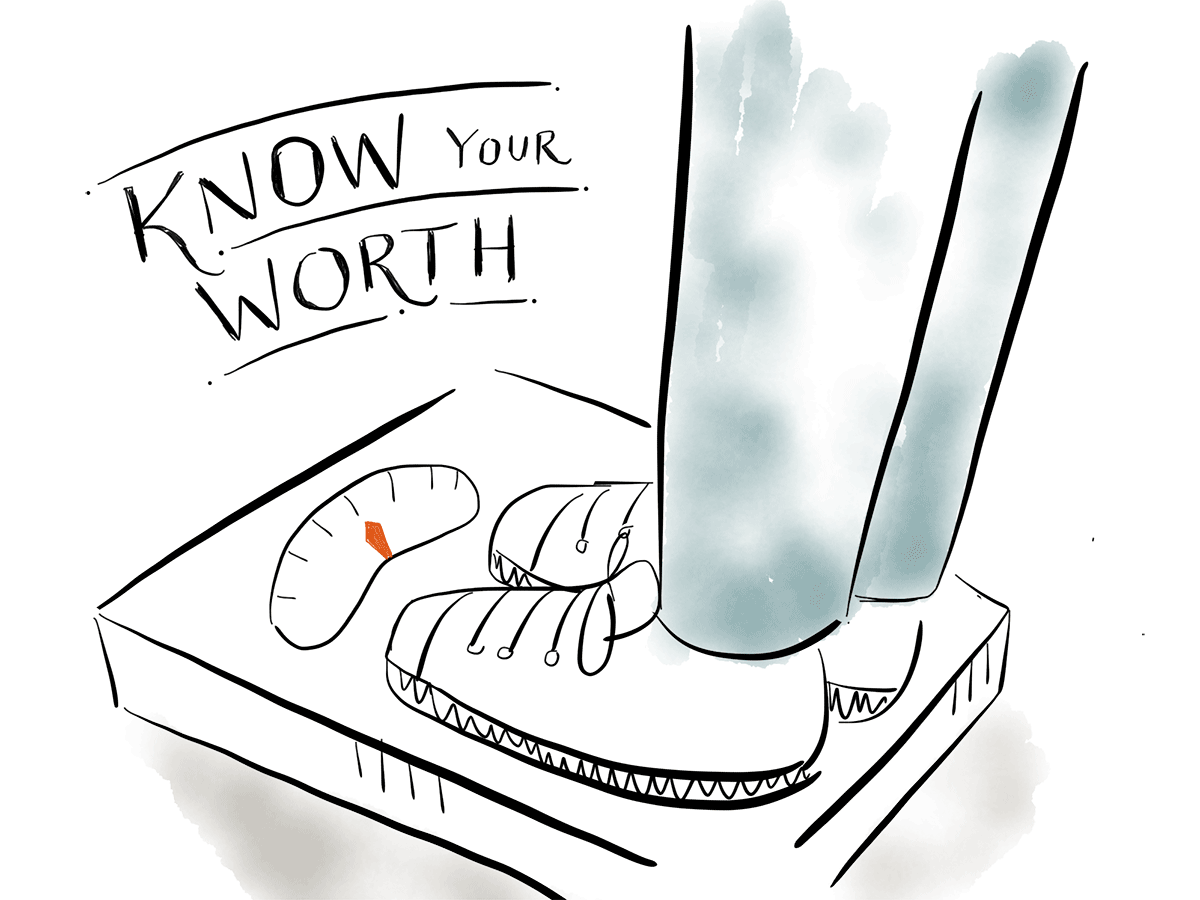
Know your worth
Your quotes should be realistic for you and your client. Taking a job that is underpaid today might mean a chain of clients who want to pay cheap in the future. On top of that, this underpaid job will keep you away from investing time in other well paid projects or getting new ones. That said, being flexible with jobs you really want to do and you think will lead you to a great piece in your portfolio or to more potential work of this kind it's a thing you have to be sharp enough to measure. Don't say no to any job that doesn't pay as well as you'd like to. If you're interested in doing the job you could actually come up with other forms of reward that could compensate the cash (promotion, exchange, limited licensing, etc.).
![]()

Get better
Improve your skills, take workshops, carry on side projects, read. Don't think you have reached the right level because you got a degree. Things change pretty fast and you have to be up to date. Saying that "programming is not for me" equals saying years ago that you're not ready to jump from MS Paint to Adobe photoshop. You do not have to be a master at everything but at least have an idea of what it is about, how it basically works and what you can achieve with that.
![]()
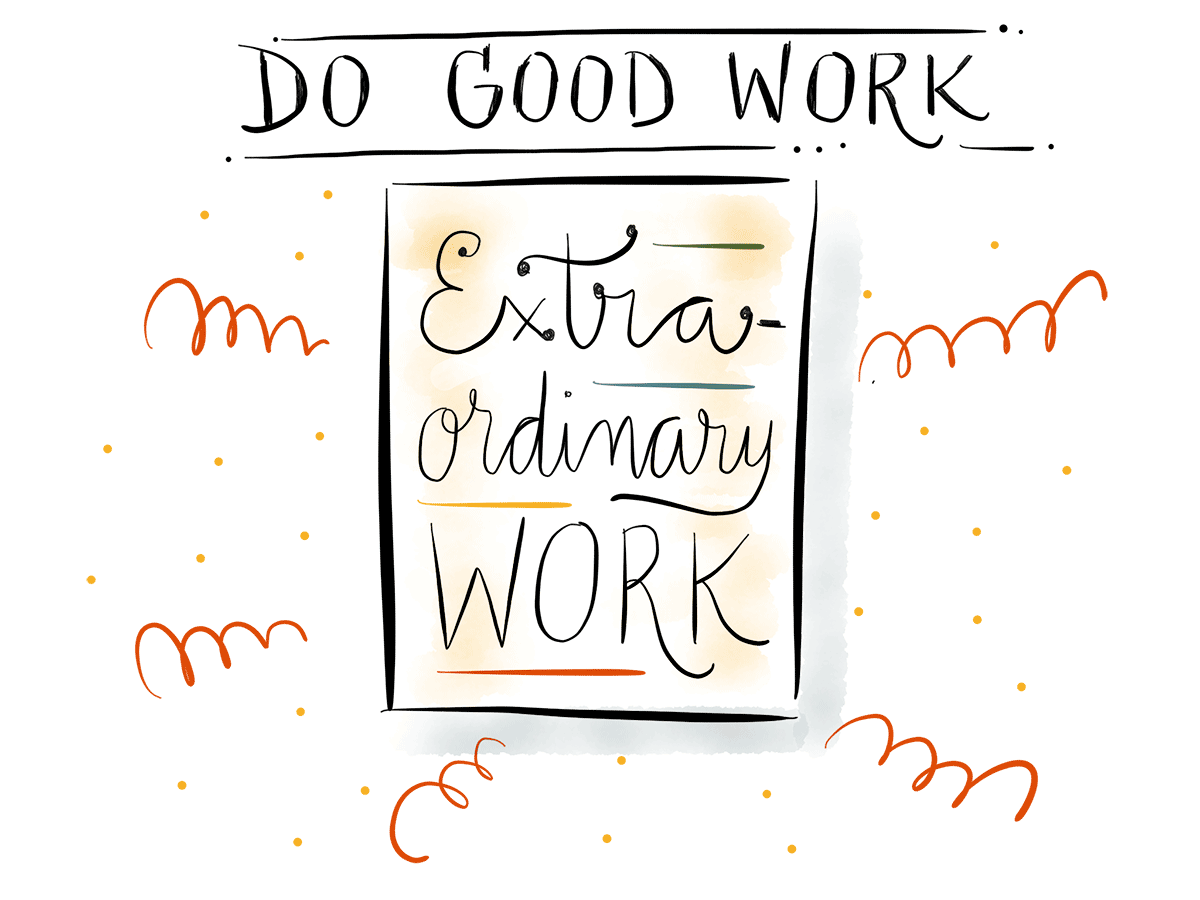
Do good work
Most important of all: DO GOOD WORK. There's so many things out there and so many people talented professionals working in the same area than you are, that the only way to stand out is by doing good work consistently. And you wonder how to do this? That would require an entire extra article but in a few words: Stop using formulas and repeating yourself. The extraordinary work is that one that comes out from breaking this formulas, the one that takes you a step forward. Think which kind of contribution you want to make in the creative world and be acquainted with the fact that everything you put out there will stay there forever, so better be good.
![]()
Illustrations #madewithpaper
Join thousands of readers in this community and upgrade your lettering skills! If you're as excited as I am, send this link to a friend, so they can subscribe too.
<script async="" data-uid="43b00f9969" src="https://prodigious-motivator-7545.ck.page/43b00f9969/index.js"></script>

